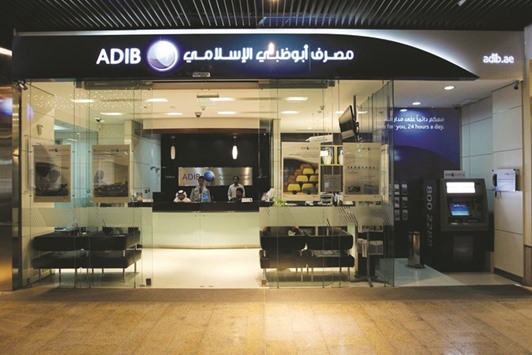Abu Dhabi Islamic Bank (ADIB) has posted a 16.6% rise in fourth-quarter net profit, and marginally increased its dividend for 2015.
The earnings were part of mixed fourth-quarter results for UAE banks, with Emirates NBD and Dubai Islamic Bank posting bumper profit growth while National Bank of Abu Dhabi, Mashreq and Union National Bank saw profits fall.
ADIB, Abu Dhabi’s largest Shariah-compliant bank, made a net profit of 477.4mn dirhams ($130mn) in the three months to December 31, compared to 409.6mn dirhams in the same period a year ago, it said in a bourse statement.
Beltone Financial had forecast the bank would make a profit attributable to shareholders of 399mn dirhams in the quarter.
For 2015, the bank said its net profit was 1.93bn dirhams, up 10.5% from 2014.
Customer financing for loans totalled 78.4bn dirhams at the end of last year, up 7.4% from a year earlier, while customer deposits grew to 94.9bn dirhams, up 12%.
However, the bank remains cautious about growth in 2016 because of competitive pressures on credit spreads. “We continue to forecast modest new customer financing growth...” Tirad al-Mahmoud, chief executive of ADIB, said in the statement.
The bank booked loan impairments of 249.3mn dirhams in the fourth quarter, up 39.5% over the same quarter in the previous year.
ADIB’s board has proposed paying a cash dividend of 24.27% for 2015, the statement added, equivalent to 0.2427 dirham per share. The bank paid a dividend of 0.2334 dirham per share for 2014.
Dana Gas
UAE-based energy firm Dana Gas swung to a $134.2mn profit in the fourth quarter, as a one-time contribution from an arbitration process helped offset the global downturn in energy prices.
Dana made a net profit of $134.2mn in the three months to December 31, compared with a loss of $4mn in the prior-year period, Reuters calculated, based on the firm’s full-year earnings statement in lieu of a quarterly breakdown.
Dana Gas reported falling profits in the first and second quarters and a loss in the third quarter of 2015, hit by oil prices. Its chief executive, Patrick Allman-Ward, warned in November after reporting the third-quarter loss that the final three months of 2015 would be “similarly challenging”.
However, the company said in a statement it received cash later that month from RWE settling an arbitration which transferred a 5% interest in Pearl Petroleum Company. It didn’t disclose the cash amount received.
RWEST Middle East, a unit of the German energy firm, agreed to join the Pearl Petroleum group, which reduced the stakes of both Dana Gas and Crescent Petroleum from 40% to 35%, following a London arbitration process initially begun in December 2010.
The cash also helped to boost its annual profit for 2015 to $144mn, up from $125mn in the previous year. The tumble in crude prices since a June 2014 peak and a 15% decline in production from Egypt contributed to a 39% fall in 2015 gross revenue to $417mn, the statement said.
Like oil companies around the world, Dana has been cutting costs to adapt to lower prices. It has previously announced it would cut general and administrative expenses by 55% in 2016 and operating expenses by a smaller amount.
However, Allman-Ward added in yesterday’s statement that it expects higher production levels and resulting cash flows, particularly in Egypt and also in the UAE with the anticipated start-up of the Zora Field. Egypt still owes Dana $221mn as of December 31, as well as $727mn in the Kurdistan region of Iraq, according to the statement.

..
